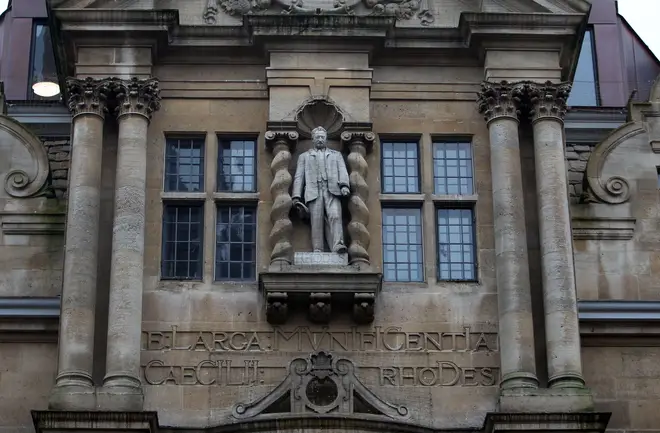
Paul Brand 7am - 10am
9 June 2020, 15:36 | Updated: 9 June 2020, 15:48

Layla Moran on Cecil Rhodes statue in Oxford and best way to address past
As crowds gather in Oxford calling for the removal of a statue of Cecil Rhodes, a Lib Dem MP told LBC that she sides with protesters.
Layla Moran is the Liberal Democrat MP for Oxford and was speaking to Shelagh Fogarty as anti-racism protesters gather in her constituency to call for the removal of a statue of Cecil Rhodes, a former Prime Minister of the Cape Colony who has been described as a "white supremacist". The protests come after the toppling of a statue of Edward Colston in Bristol sparked the conversation as to whether the UK should be celebrating the lives of such controversial figures in a modern, multicultural society.
Ms Moran has always been vocal in the campaign against the statue and she began her conversation by telling Shelagh that she supports protests but urges them to make their voice heard safely, adding that she doesn't "think vigilante action is the right way to do this."
She told listeners that she would rather see the statue "put in a museum" and taken from clear view in Oxford, as Mr Rhodes "had many views that would run counter to the values that we hold so dear" in modern Britain.
Shelagh was skeptical of the suggestion that putting the statue in a museum solves the problem. "Why does moving it somewhere else change anything" she wondered. Ms Moran stated that removing the statue from existence totally is counter-productive and the public must be aware and conscious of the UK's colonial past and keeping these memories is a way to keep the public clued in.
She added that "communities themselves need to be consulted about what to do with these statues" and called upon Oxford residents to make their voices heard on the topic so the right decision can be made, and so people who weren't sure of the conversation in the beginning understand why the monuments cause so much offence.

Shelagh pointed out that we've seen in Bristol that the council sometimes doesn't work to fulfil the requests of its residents as it has become known that Bristolians overwhelmingly wanted the statue of Edward Colston removed, but this was never acted upon. She wanted to know what would be different in the case of Oxford.
Ms Moran told Shelagh that it needs to be made sure that government departments have been consulted on this and get involved in the conversation of removal and moving forward. "Engaging with communities is best practice" she said and that a transparent dialogue between the council, the residents and government departments could ensure the best outcome.
"We need to accept that not everywhere is finding this easy" she noted, referencing the many difficult conversations that have been had in families up and down the country during the Black Lives Matter protests. She concluded that "having this conversation sensitively is the right way to go about this" and the system she has suggested, in her view, is the right way.
Listen & subscribe: Global Player | Apple Podcasts | Google Podcasts | Spotify